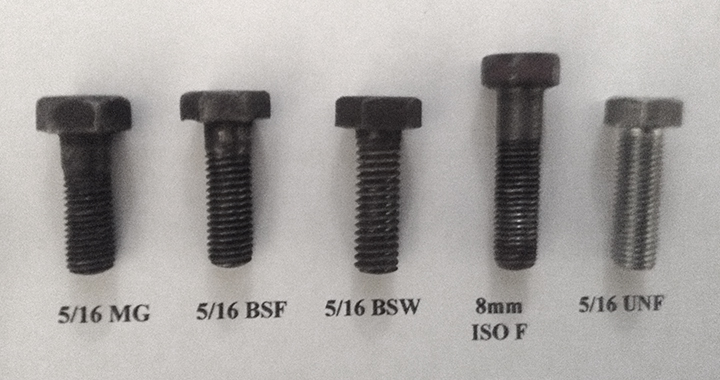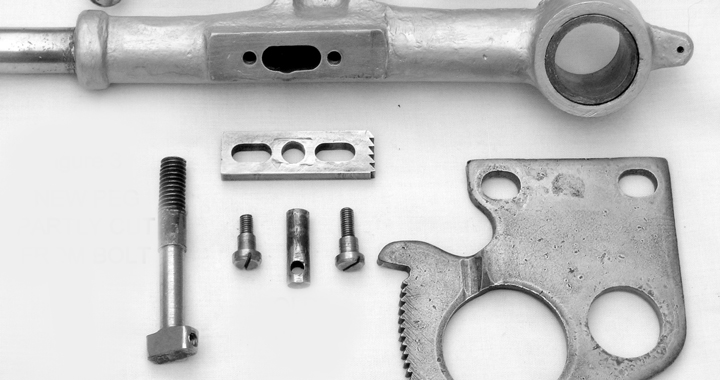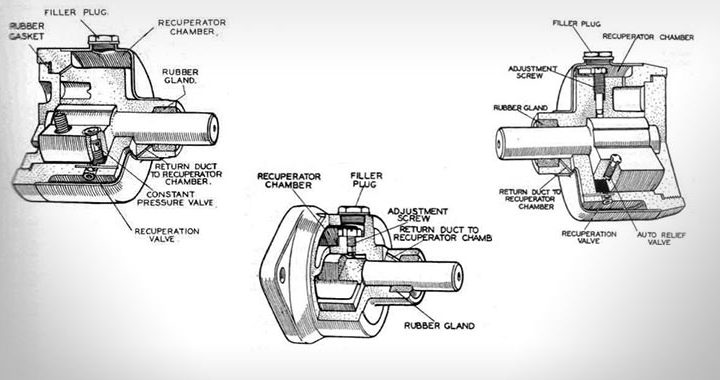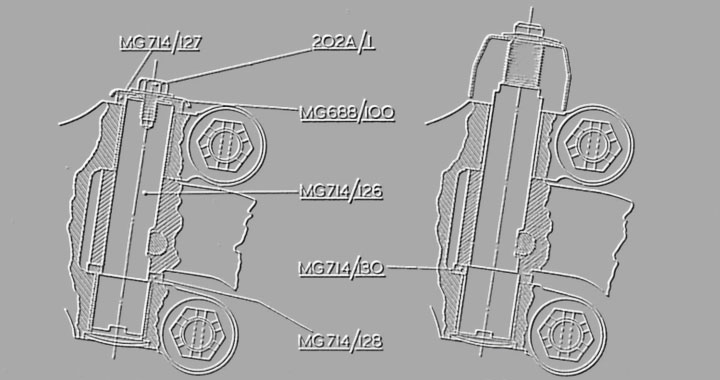Over the years, there have been many articles written on the issues relating to obtaining the correct replacement nuts and bolts for the engine and gearboxes fitted to our SVW cars. I therefore thought it prudent to produce a summary of the issues for the benefit of our newer members.
‘Mad Metric’ nuts and bolts!
You may think that if a BSF spanner fits a bolt on your engine then the thread on the bolt is BSF, unfortunately this is not the case as our engines and gearboxes have old French Standard Metric threads on imperial headed bolts. Often called mad metric nuts and bolts. Why is this you may ask? Well it goes back to 1915 when the French firm, Hotchkiss, relocated to Coventry due to the advancing Germans during the First World War. After the war they started to make engines for William Morris and others. In 1923 William Morris brought out Hotchkiss to manufacture own his engines. Unfortunately for us he did not take the opportunity to convert to British Standard threads (probable due to the expense of re-tooling the thread cutting machinery). He did however adopt a very British compromise in having the nuts and bolts produced from imperial sized hexagonal steel so that British size spanners fitted the heads on the bolts or nuts.
As you may know our MG Engines and gearboxes were built and supplied by Morris Motors. The last MG to use these ‘Mad Metric’ threads was the 1955 MG TF, after that MG engines had UNF and UNC threads.
As a result of this non British standard thread on our engines it is not uncommon to now find some incorrect threaded bolts fitted or the holes re-threaded for replacement bolts. Which is quite understandable if you, or past owners, did not know that our engines where manufactured with these mad metric nuts and bolts.
Thread Profile
A further complication is that the thread profile may differ as well as the Threads Per Inch (TPI), hence the easily obtainable (and often supplied as ‘will fit’) ½ inch UNF bolt will tighten up into the engine block, but it can be the threads tightening up, not necessarily the faces being clamped together, resulting in gasket leakage. If your 5/16 spanner does not fit the nut or bolt correctly it is an indication that the bolt is not the original.
Good practice
Because of the possibility that some bolts may have been changed or the thread re-tapped, it’s good practice to label the individual nuts and bolts when stripping the engine so you replace them in the exact same positions, thereby eliminating damaging a second thread. A further check is to ensure that the bolt screws fully into the block before fitting the component being secured. All the other nuts and bolts on our cars for the chassis and body are standard BSF.
If you require new replacement nuts and bolts the specialist T Type suppliers are possible sources.
Comparison table of the most common 5/16 bolts fitted to engines
| Size | 5/16 MG |
5/16 BSF |
5/16 BSW |
8mm ISO F |
8mm ISO C |
5/16 UNF |
5/16 UNC |
|---|---|---|---|---|---|---|---|
| Diameter (in) | 0.3150 | 0.3125 | 0.3125 | 0.3150 | 0.3150 | 0.3125 | 0.3125 |
| Diameter (mm) | 8 | 7.9375 | 7.9375 | 8 | 8 | 7.9375 | 7.9375 |
| Threads Per Inch | 25.4 | 22 | 18 | 25 | 20.3 | 24 | 18 |
MG = BSF Spanner size with old French Standard Metric threads
BSF = British Standard Fine
BSW = British Standard Whitworth
ISO F = International Standard Organisation Fine (Metric)
ISO C = International Standard Organisation Corse (Metric)
UNF = Unified National Fine (also known as American National Fine ANF)
UNC = Unified National Corse (also known as American National Corse ANC).




